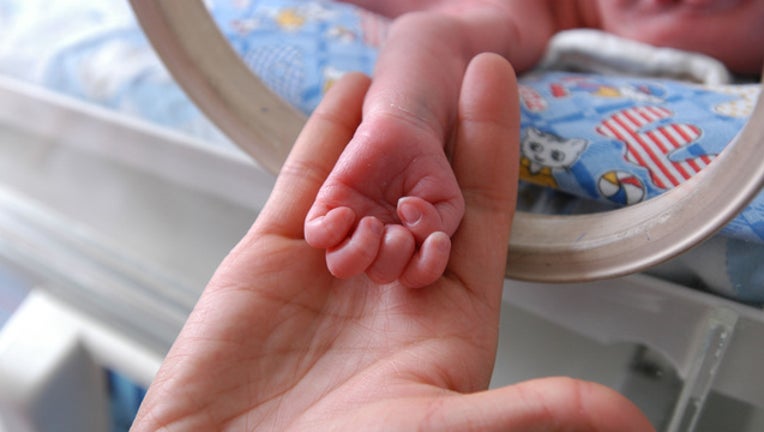FDA approves first drug for treating postpartum depression

FILE. (Photo by China Photos/Getty Images)
TRENTON, N.J. (FOX 11) - The U.S. Food and Drug Administration approved the first drug specifically developed for severe depression after childbirth, it was announced Tuesday.
The agency approved Sage Therapeutics’ Zulresso, an IV drug given over 2 ½ days.
Sage said Zulresso will cost $34,000 without insurance, plus costs for staying in a hospital or infusion center. Whether the treatment gets covered by insurance is determined by each insurance company, which also sets the out-of-pocket costs, depending on the plan.
In a company-funded study of new mothers with moderate or severe postpartum depression, half the women given Zulresso had depression end within 2 ½ days, about double the rate of those in a comparison group given placebo treatments.
Postpartum depression affects about 400,000 American women a year, according to the the Centers for Disease Control and Prevention.
Feelings of postpartum depression are more intense and last longer than those of “baby blues,” a term used to describe the worry, sadness and tiredness many experience after having a baby, the CDC says.
The symptoms of postpartum depression are similar to symptoms of depression, but may also include crying more than usual, feeling distant from your baby, fear of being an inadequate mother or feelings of anger or hopelessness, according to the CDC. It often ends on its own within a couple weeks, but symptoms can be different for each person.
“Postpartum depression is a serious condition that, when severe, can be life-threatening,” Dr. Tiffany Farchione of FDA’s Division of Psychiatry Products said in a statement. “Women may experience thoughts about harming themselves or harming their child,”
It can be treated with antidepressants, which can take six to eight weeks to work and don’t help everyone, or with counseling.
Zulresso’s active ingredient, brexanolone, mimics a derivative of the naturally occurring hormone progesterone, levels of which can plunge after childbirth. The infusion helps restore normal levels and emotions, according to Sage Chief Executive Dr. Jeff Jonas.
The drug’s most common side effects were sleepiness, dizziness and headaches. A few women had more-serious problems, such as fainting and loss of consciousness.
"Because of concerns about serious risks, including excessive sedation or sudden loss of consciousness during administration, Zulresso has been approved with a Risk Evaluation and Mitigation Strategy (REMS) and is only available to patients through a restricted distribution program at certified health care facilities where the health care provider can carefully monitor the patient," Farchione said.
Zulresso appears safe for breastfeeding, Dr. Kimberly Yonkers told the Associated Press, a psychiatrist specializing in postpartum depression who heads Yale Medical School’s Center for Wellbeing of Women and Mothers.
She expects the drug will be used to treat serious cases and patients not helped by antidepressants.
“It’s going to depend on patient willingness to go into an infusion center and insurers being willing to pay for this,” Yonkers added.
Sage plans to begin selling the drug in late June.
It’s developing a second, similar treatment in pill form, and Marinus Pharmaceuticals is testing both a pill and IV therapy.
FOX 11 reported on this story from Los Angeles. The Associated Press contributed.

